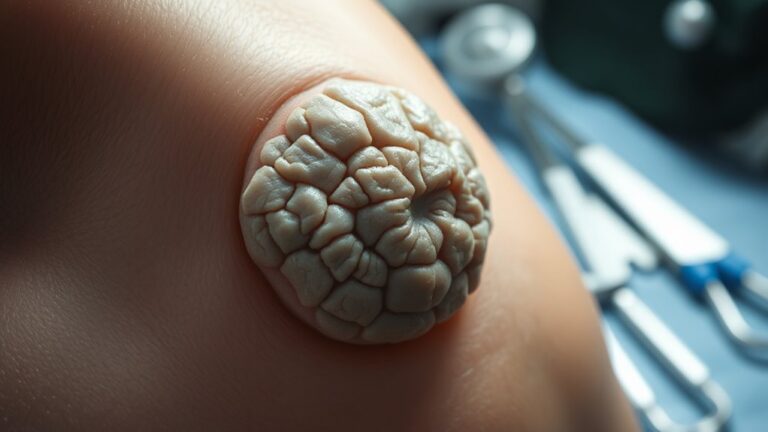A strong ammonia smell in urine can be alarming, but it often has simple explanations. At times the body lacks enough water, urine becomes concentrated, making waste products like urea disintegrate into ammonia. Consuming too much protein can also lead to this odor because the kidneys work harder to process excess nitrogen. Infections, liver issues, or metabolic disorders may play a role too, transforming a normal bodily function into something worth paying attention to.
Dehydration and Ammonia Smell in Urine
As the body lacks sufficient water, urine grows more concentrated, potentially resulting in a more pungent ammonia-like scent. Insufficient fluid intake reduces the volume of urine, allowing waste products like urea to build up.
When urea breaks down, it releases ammonia, intensifying the odor. Dehydration can also lead to an electrolyte imbalance, disrupting normal kidney function and further concentrating urine. Symptoms like dark yellow urine, dizziness, or dry mouth often accompany this issue.
Drinking more water dilutes urine, reducing the strong smell. Ignoring dehydration might worsen the problem, so staying hydrated is key. Although occasional strong odors aren’t always concerning, persistent ammonia-like smells warrant attention. Simple fixes, like increasing water intake, often resolve the issue quickly.
High-Protein Diet and Its Effect on Urine Odor
A high-protein diet can lead to a stronger ammonia smell in urine due to the way the body breaks down excess protein. This process produces nitrogen byproducts, which the kidneys filter out, sometimes leaving urine with a sharp odor.
People on such diets could also experience mild dehydration, exacerbating the smell, and might need to adjust their eating habits to balance their system.
Protein Breakdown Process
As the body metabolizes protein obtained from nourishment, it generates ammonia as a side effect, which the liver transforms into urea before it’s filtered out through the kidneys. Whenever someone consumes an increased protein intake—common in high-protein diets—the liver and kidneys work harder to break down excess nitrogen.
Should enzyme activity be reduced due to stress, illness, or genetic factors, ammonia may not convert efficiently, leading to a stronger odor in urine. The kidneys excrete urea, but when taxed, traces of ammonia can linger, intensifying the smell.
While this process is typical, persistent strong odors could signal the need to adjust protein consumption or check for underlying issues. Maintaining hydration helps dilute urea, but the root cause often ties back to protein metabolism.
Dehydration Risks
As the body handles vast quantities of protein, it necessitates additional water to expel the remnants, which can result in dehydration should fluid consumption not be elevated. Whenever water intake levels fall short, the kidneys struggle to dilute urea—a byproduct of protein breakdown—leading to concentrated urine with a strong ammonia odor.
Nutritional imbalances, particularly excessive protein without adequate hydration, compel the body to conserve water, worsening the smell. Dehydration also reduces urine volume, amplifying the scent. Symptoms like dry mouth, fatigue, or dark yellow urine indicate insufficient fluids. Without enough water, the body can’t efficiently flush waste, making the odor more noticeable.
Balancing protein intake with proper hydration helps prevent these issues, ensuring waste removal without overwhelming the system.
Dietary Adjustments Needed
As someone consumes a substantial amount of protein—such as meat, eggs, or protein shakes—their body metabolizes it into waste products, including urea. High urea levels can make urine smell strongly of ammonia. To reduce this odor, balancing protein intake with other nutrients is key. Ensuring the body processes protein efficiently, while adequate fluid intake aids in diluting urea, lessening the smell.
| Dietary Adjustment | Effect on Urine Odor |
|---|---|
| Reduce excess protein | Lowers urea concentration |
| Increase water intake | Dilutes urea, weakens odor |
| Add more vegetables | Balances digestion |
| Limit processed meats | Reduces harsh byproducts |
| Choose plant proteins | Gentler on metabolism |
Small changes can make a big difference without sacrificing nutrition.
Urinary Tract Infections (UTIs) and Ammonia Odor
One common reason urine can strongly smell of ammonia is a urinary tract infection, or UTI. When bacteria invade the urinary tract, they multiply and cause irritation in the bladder or kidneys. This can lead to concentrated urine with a sharp ammonia odor.
Kidney infections, a more severe type of UTI, often intensify the smell due to higher levels of waste buildup. Bladder irritation from the infection may also alter urine’s scent, making it more pungent. Other symptoms like burning during urination, frequent urges to go, or cloudy urine often accompany the odor.
Staying hydrated helps dilute urine, but untreated UTIs can worsen, so seeing a doctor is crucial. Prompt treatment prevents complications and reduces discomfort.
Liver Problems Linked to Strong Ammonia Smell in Urine
Liver issues can sometimes make urine smell strongly of ammonia because the organ struggles to metabolize waste properly. Rather than when the liver isn’t functioning well, toxins like ammonia build up in the bloodstream and exit through urine, creating a sharp odor. Hormonal imbalances or medication side effects can exacerbate this by disrupting liver processes. Conditions like cirrhosis or hepatitis often contribute to this problem.
| Condition | Effect on Liver | Emotional Impact |
|---|---|---|
| Cirrhosis | Scarring reduces function | Fear of progression |
| Hepatitis | Inflammation disrupts work | Anxiety about long-term health |
| Medication overload | Toxins overwhelm the liver | Frustration with side effects |
Early detection and treatment can help manage symptoms and reduce the strong ammonia smell. Consulting a doctor is essential for proper diagnosis.
Metabolic Disorders That Cause Ammonia-Scented Urine
Metabolic disorders can lead to urine with a strong ammonia smell due to the body’s inability to process waste properly.
Liver dysfunction could cause ammonia to build up in the bloodstream, while kidney disease might prevent its effective removal. These conditions disrupt normal metabolic processes, often resulting in noticeable changes in urine odor.
Liver Dysfunction Effects
As the liver fails to function ideally, waste substances like ammonia could accumulate in the system rather than being degraded, resulting in urine with an unusually pungent or offensive odor. Liver dysfunction disrupts the body’s ability to process toxins, leading to metabolic imbalances that affect urine composition.
- Fatty liver disease can impair ammonia breakdown, causing stronger-smelling urine.
- Cirrhosis complications often intensify toxin buildup, worsening the odor.
- Jaundice or yellowing skin could accompany ammonia-scented urine in advanced liver disease.
- Fatigue and nausea are common alongside these urinary changes.
- Medications or infections further burden the liver, exacerbating the issue.
Early detection and management of liver conditions can help reduce these symptoms. Consulting a healthcare provider is essential if urine odor persists or worsens, especially with other concerning signs.
Kidney Disease Impact
Several kidney-related conditions can lead to urine that smells strongly of ammonia, often signaling that the body isn’t filtering waste properly. Chronic kidney disease management becomes crucial when the kidneys struggle to remove toxins, causing ammonia to build up in urine.
Acute kidney injury effects can also trigger this odor if sudden damage disrupts normal waste filtration. Dehydration worsens the smell, as concentrated urine holds more waste. Other signs like fatigue, swelling, or changes in urination may accompany the odor, hinting at deeper issues.
Timely detection and treatment help slow kidney damage, so consulting a doctor is key. Simple tests can pinpoint the problem, guiding steps to protect kidney health and reduce discomfort.
Other Potential Causes of Ammonia-Like Urine Odor
Certain medications and supplements can lead to urine that smells strongly of ammonia. Beyond dehydration and diet, other factors like bacterial overgrowth or hormonal imbalances might alter urine odor.
Bacterial infections in the urinary tract can decompose urea into ammonia, intensifying the smell. Hormonal shifts, particularly during pregnancy or menopause, could also contribute.
- Vitamin B6 or D supplements: High doses can change urine composition.
- Antibiotics: Disrupt natural gut bacteria, potentially causing ammonia-like odors.
- Diabetes medications: might alter urine pH, increasing ammonia scent.
- Liver dysfunction: Reduces urea processing, leading to stronger odors.
- Prolonged fasting: Forces the body to break down protein, releasing ammonia.
Understanding these causes helps identify when medical advice is needed. Subtle changes often resolve on their own, but persistent odors warrant attention.
Conclusion
The body whispers through scent, an ammonia-like odor in urine often hints at simple fixes like sipping more water or adjusting meals. Yet sometimes, it’s a nudge to peek deeper—perhaps a minor infection or a metabolic hiccup. Listening promptly, with a doctor’s guidance, can turn worrisome whiffs into quiet reassurance. After all, even small signals deserve attention, paving the way for gentle corrections and smoother days ahead.



